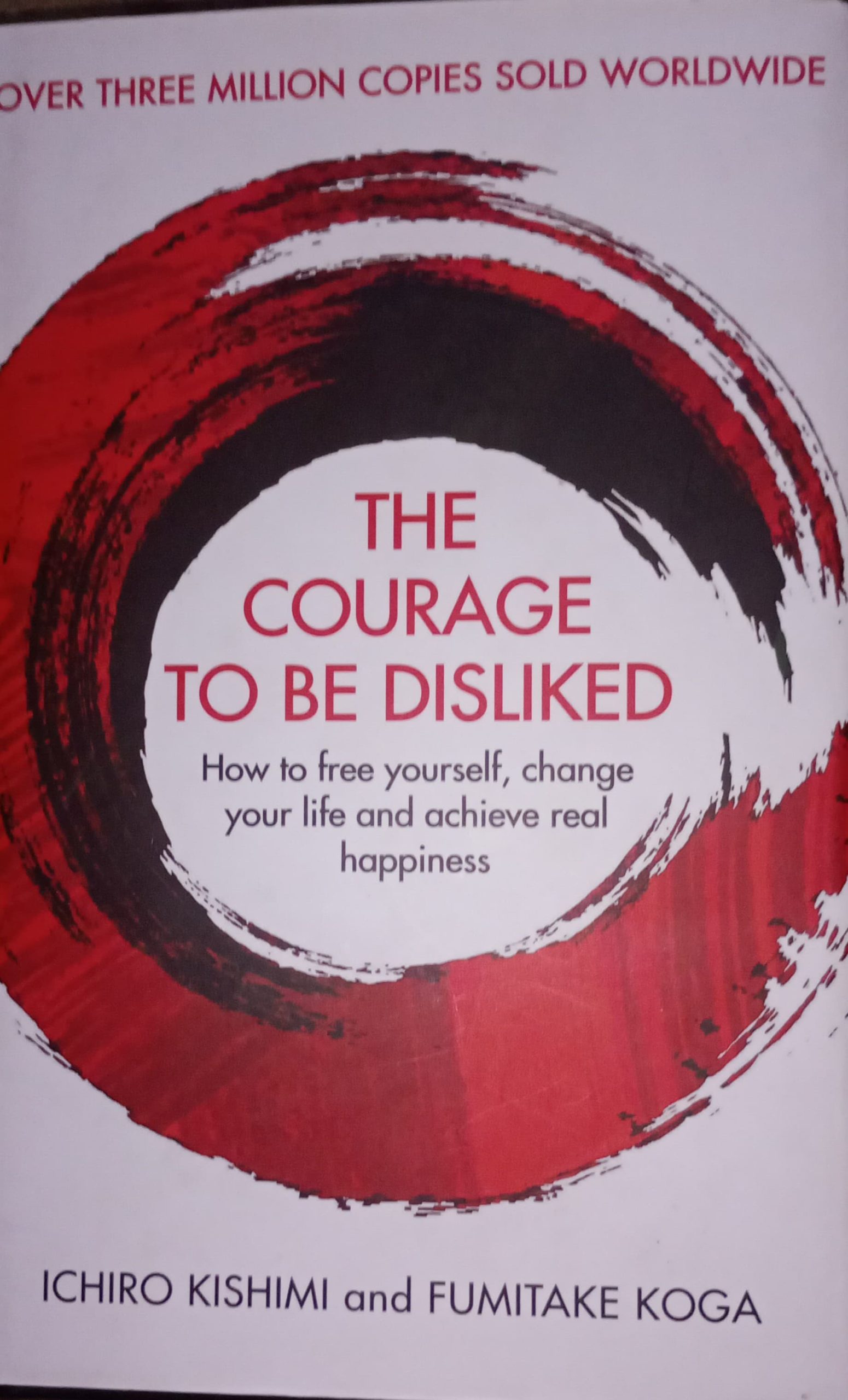
Availability
available
Original Title
THE COURGES TO BE DISLIKED
Subject & College
Series
Publish Date
2013-02-01
Published Year
2013
Publisher, Place
Total Pages
272
ISBN
9781760630720
Format
Paperback
Language
English
Average Ratings
Readers Feedback
A single book can change your life.
These questions have puzzled great thinkers, philosophers and, at times, even ordinary people like you and me. The answer varies according to one’s experience and...Read More
Shelke Shubhangi Sanjay
A single book can change your life.
These questions have puzzled great thinkers, philosophers and, at times, even ordinary people like you and me. The answer varies according to one’s experience and understanding of life.
I am thinking about it because this was the theme of the book, I picked up recently: The Courage to Be Disliked by Ichiro Kishimi and Fumitaka Koga.
The authors’ note mentions the book deriving ideas from Alfred Adler’s teachings. Adler, an Austrian physician and psychiatrist, propounded the concept of individual psychology focused on the human need and ability to create positive social change.
Since the book delves into
complicated behavioural concepts, I am assuming, it is presented in the form of a conversation between two characters (just like the Bhagwat Gita): a philosopher and a young man, that takes place over five nights.
The man is dissatisfied with his life and finds the world “a chaotic mass of contradictions”. Conversely,
the philosopher preaches that the world is simple and everyone can find happiness based on Adler’s teachings.
The dialogue between them begins with an interesting correlation between the cause and the effect.
The young man is adamant that one’s past has a significant impact on one’s present. It can empower or handicap an individual but the philosopher counters him with Adlerian psychology that denies trauma, places little importance on one’s past and instead emphasises the role played by present goals.
He says we live in a subjective world that we ‘ourselves have given meaning to’ and underlines the significance of the present moment and the choices we make now.
Staying in the past and denying the possibility of changing oneself would deter us from moving forward in our lives.
The big question that follows is if we are capable of reinventing ourselves at our own will then why are we stuck in unhappy circumstances or complain about not being in control?
Answering probably one of life’s most fundamental questions, the wise man says that there’s anxiety attached to changing and disappointment attached to not changing.
One’s unhappiness cannot be attributed to one’s past or environment but simply to a lack of courage. Courage to step out of one’s comfort zone and become happy.
have experienced this dilemma. I come from a
ysfunctional family and had a messed up outlook on
elationships while growing up due to conflicts at home.
However, as an adult, I confronted the reality of having the hoice to continue down the same road or change things for
myself.
chose the latter. It took tremendous awareness, willpower
nd determination to break the chain. Courage was one of
he key ingredients too!
